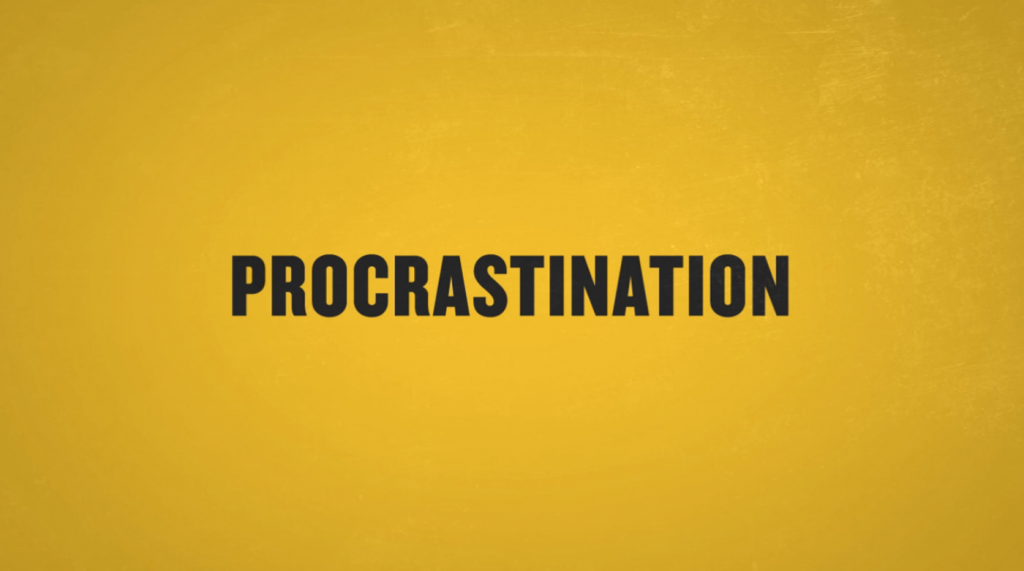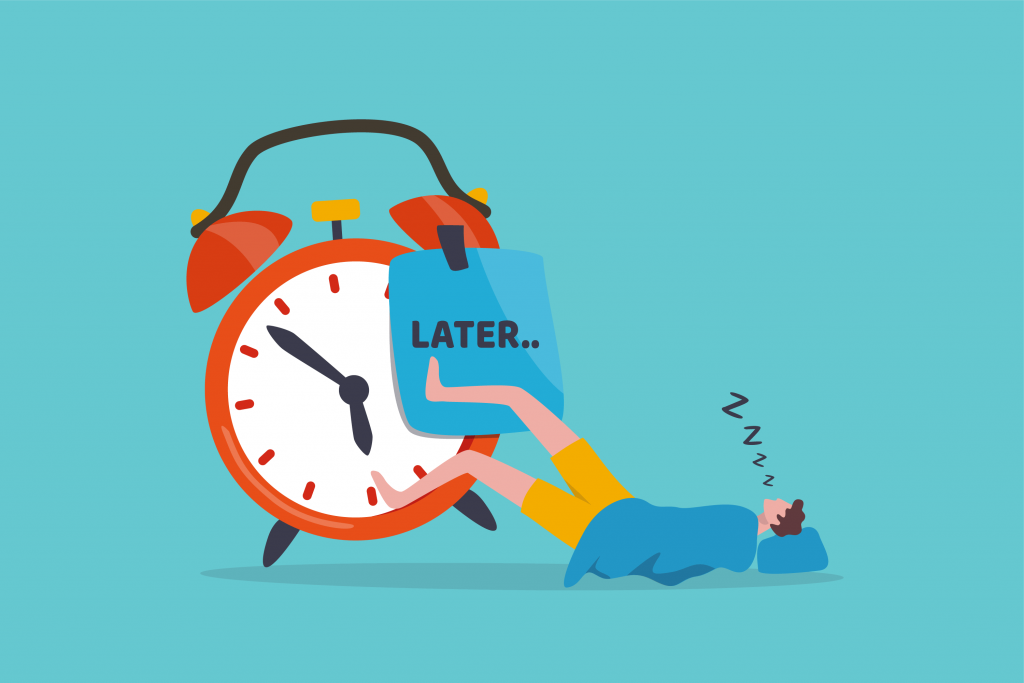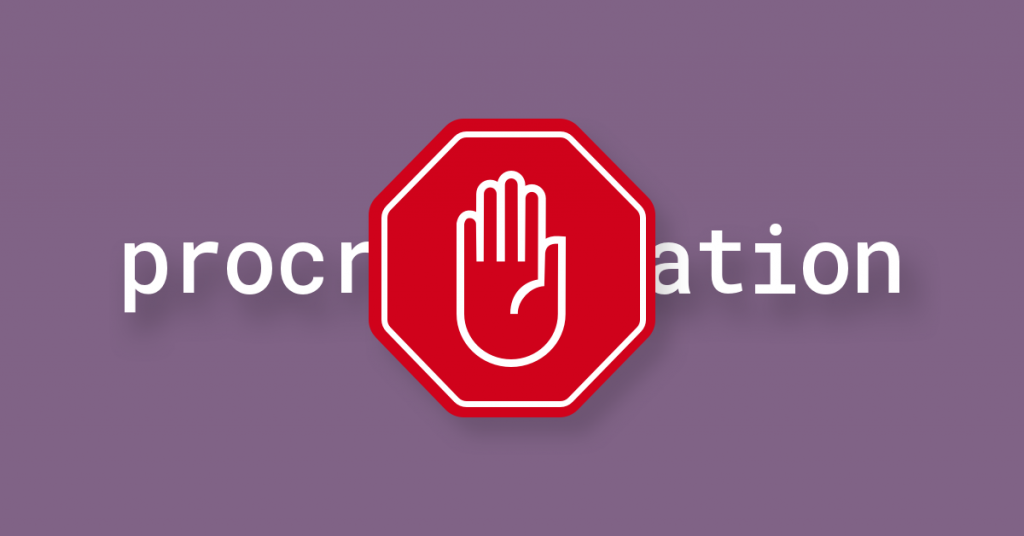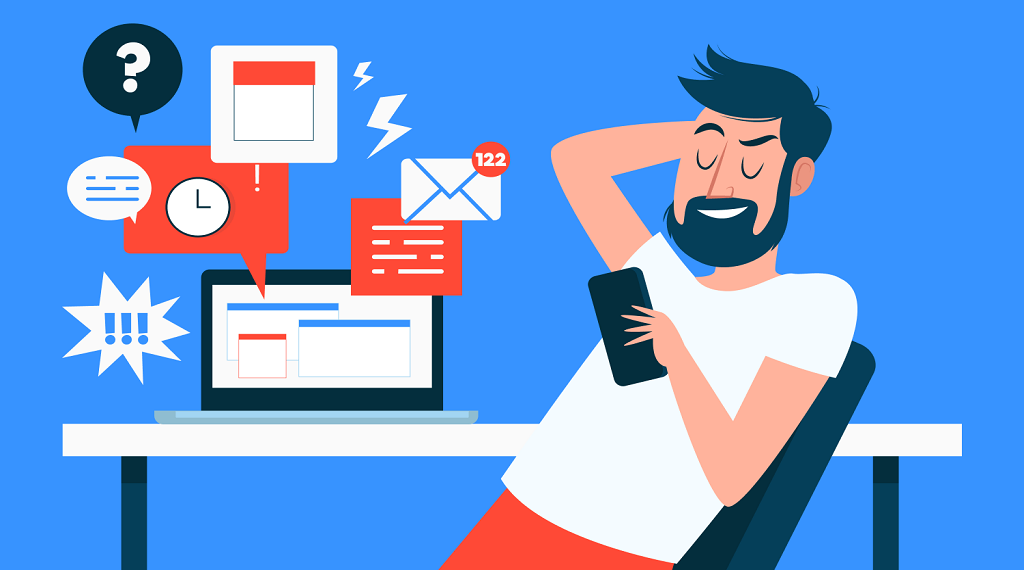Today we are going to discuss a habit that comes from escapism, i.e., procrastinating. Undoubtedly, procrastination significantly impacts both our personal and professional lives. We have to be conscious of how this habit is affecting us. We have to shake ourselves and tell ourselves in a firm voice to stop procrastinating. If you are ready to get rid of this habit, then let us begin.
What is Procrastinating?

We need to understand the meaning of the term “procrastinating.” Procrastinating is the process of delaying tasks until the last minute or past their deadline. Some researchers term procrastination as a form of self-regulation failure portrayed by the irrational delay of tasks even with possible negative outcomes.
What Triggers Procrastination
Do you remember the time when you thought you had a month to finish a certain project? Or, how about cleaning the apartment because you just ‘didn’t feel like it?’
We often assume that the task at hand won’t require a significant amount of time, giving us a false sense of security. We start to believe we have plenty of time left to finish the task. There are few other factors that can trigger it. Let us have a look at some causes of procrastination.
1. Academics
Researchers imply that procrastination can be particularly seen among students. An analysis published in the Psychological Bulletin found that 80% to 95% of college students procrastinated on a regular basis, chiefly when it came to finishing assignments and coursework. Because of the following:
- They overestimate how much time they have left to complete the work.
- They overestimate how much they will be charged in the future.
- They overestimate how long the assignment will take to complete.
2. Present Bias
The present bias is an incidence seen in human actions that may result in procrastination. The present bias means that we are likely to be provoked more by immediate fulfillment than we are by long-term rewards. This is why it traps us into procrastinating.
For example, the instant reward of staying in bed and watching TV is more alluring than the long-term reward of publishing a blog post or finishing an office project, which would take much longer to accomplish.
3. Depression
Procrastination can also be a consequence of depression. A sense of hopelessness, helplessness, and a lack of energy can make it difficult to start (and finish) the simplest assignment.
Depression can also lead to self-doubt. When you can’t figure out how to attempt a project or feel insecure about your capacity, you might find it easier to delay it.
4. Obsessive-Compulsive Disorder (OCD)
Another major cause of procrastination is OCD. Procrastination is also quite common in people with obsessive-compulsive disorder.
One reason is that OCD is often linked with manipulative diligence, which triggers fears about making new mistakes, worries about whether you are doing something correctly, and worries over others’ expectations of you.
Why Do We Procrastinate?

We often come up with a number of reasons or rationalizations to validate our actions. According to researchers, there are some reasons why people say they procrastinate:
- Not knowing what action to take.
- Not knowing the process to do the work.
- Not wanting to do the work.
- Not caring about the work.
- Not caring when the work gets done.
- Not feeling like doing the work.
- Having the habit of waiting until the last minute.
- Believing we perform better under pressure.
- Thinking that we can complete it at the last moment.
- Lacking the idea of how to get started.
- Forgetfulness.
- Blaming sickness or poor health.
- Waiting for a suitable time.
- Wanting time to think about the work.
- Holding up a task to work on another.
Negative Impacts of Procrastination
This process of procrastination can have a number of adverse effects on our lives, including our professional, financial, and personal areas. This habit of procrastination may cause:
- Mental Stress & Physical illness.
- The amplified weight placed on social relationships.
- Antipathy from friends, family, and co-workers.
- Consequences of increasing unfinished works.
Read More: Best Books About Overcoming Procrastination
How To Stop Procrastination

You might have already begun telling yourself to ‘stop procrastinating’ or have often wondered, ‘How can I stop procrastinating?’. If yes, let us discuss some ‘stop procrastinating tips’ that might be helpful for you.
- Make a to-do list: To help keep you on track, always place a date next to each task.
- Take baby steps: Break the items on your list into small, controllable steps so that your tasks don’t seem so crushing.
- Know the warning signs: Be aware of any thoughts of procrastination & try your best to stop the urge. If you start to think about procrastinating, push yourself to spend a few minutes working on your assignment.
- Eliminate distraction: Ask yourself what draws your attention away the most, whether it’s WhatsApp or Facebook updates or the news. Turn off those distractions.
- Congratulate Yourself: When you have successfully completed a task, congratulate yourself. Treat yourself with your favorite snack or some minutes of your favorite pastime, but don’t get hooked on it; use them as a reward for a job well done.
Conclusion
This habit of procrastination comes from a number of mental barriers. The most common of them is a sense of false security and the inability to see what you are losing in the future for some momentary pleasure. Sometimes it also comes from being overconfident.
The first step to stopping it is accepting that you are in a habit of procrastination. The next step is telling yourself in a firm voice to stop procrastinating. If required, follow the above-mentioned steps in the “How to Stop Procrastination” section. Identify how this mental blockage has wrecked your life so far.











